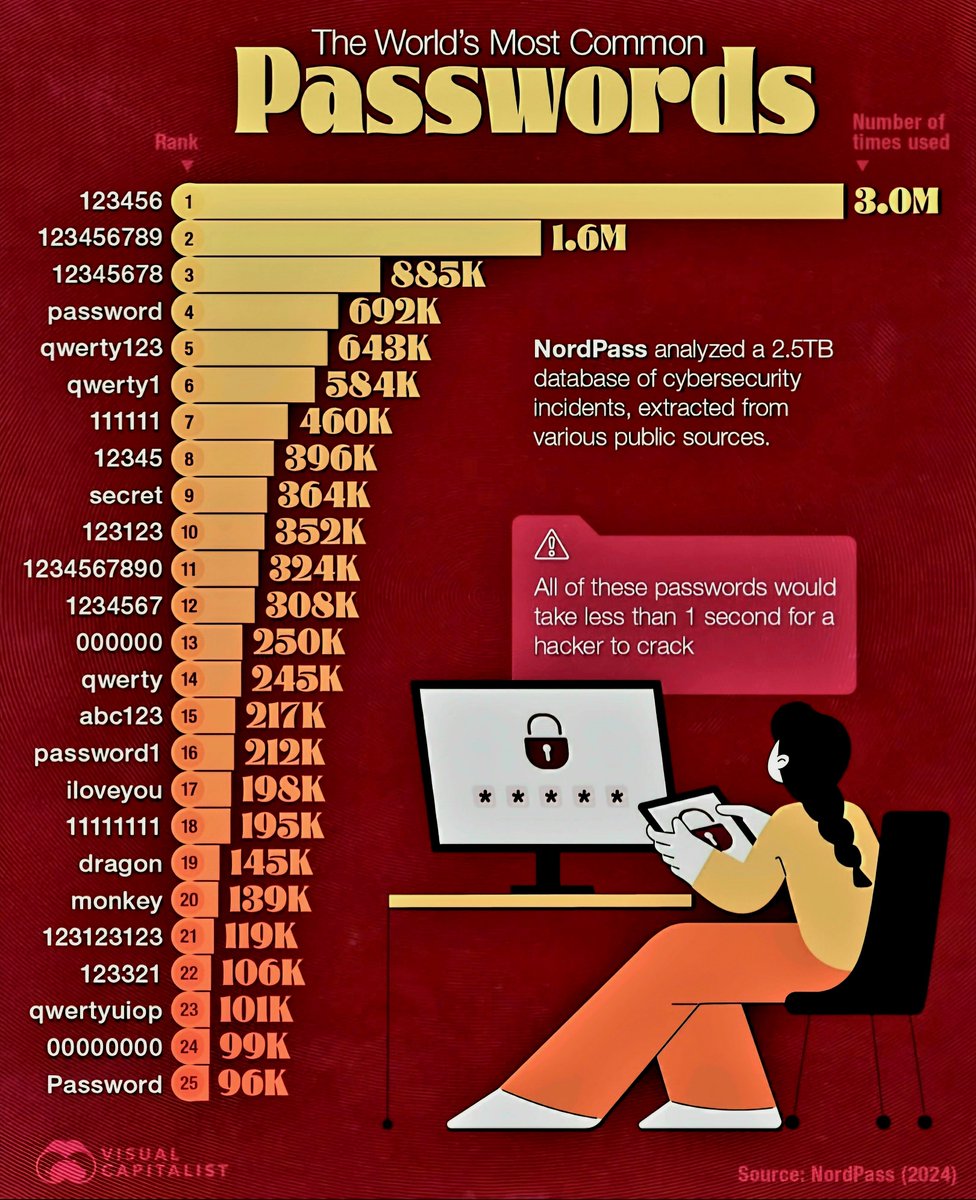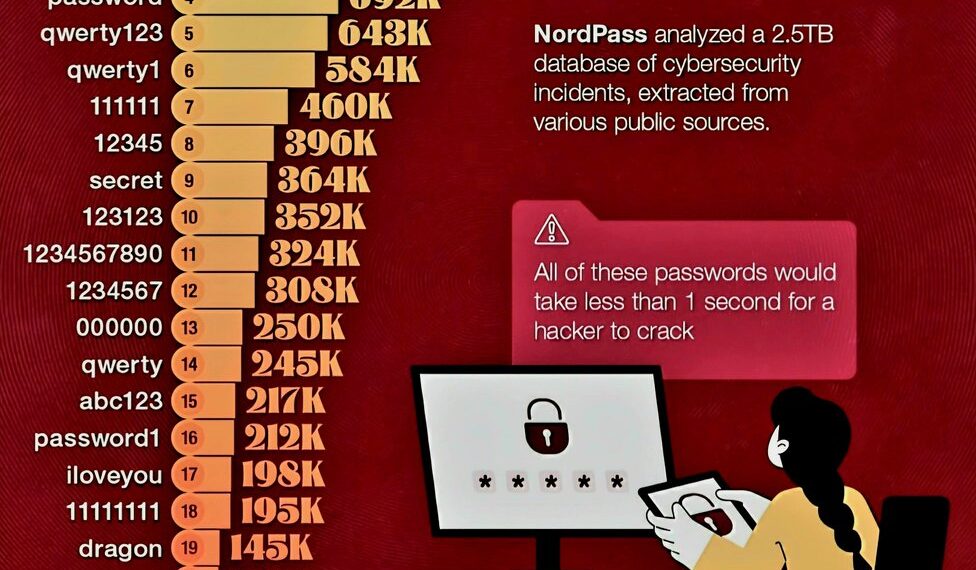Select Language:
The 25 Most Common Passwords Everyone Continues to Use in 2025

In an era dominated by digital interactions, data security remains a critical concern. Yet, despite numerous warnings and technological advancements, many individuals still rely on predictable passwords. Here’s a list of the 25 most common passwords that continue to pose significant risks to personal and organizational security in 2025.
1. “123456”
The perennial favorite, this simple sequence is still among the most used passwords worldwide. Its straightforwardness makes it an easy choice but an equally easy target for cybercriminals employing brute-force attacks.
2. “password”
Despite countless security tips, many users still set “password” as their login credential. Its familiarity and simplicity explain its persistent popularity.
3. “123456789”
A longer numeric sequence, but still remarkably common. Using such incremental sequences doesn’t add security and significantly increases the chances of unauthorized access.
4. “12345”
A shorter sequence but equally widespread. Many users underestimate how easily such passwords can be guessed or cracked.
5. “qwerty”
The top-left key row on a QWERTY keyboard often becomes a default password due to its ease of typing but is extremely insecure.
6. “111111”
Repetition of a single digit is an epidemic pattern—easy to remember but equally easy for hackers to crack.
7. “123123”
Repeating sequences are popular because they are simple but pose severe security risks.
8. “abc123”
Combining letters and numbers, yet many still rely on this pattern, making it predictable for attackers.
9. “qwe123”
Mixing keyboard patterns with numbers, but it remains a common choice, showcasing user complacency.
10. “password1”
Adding a numeral at the end of “password” does little to enhance security, but many still opt for it as a quick fix.
11. “1qaz2wsx”
A combination of adjacent keys on a QWERTY keyboard, frequently used for its ease but vulnerable against pattern recognition attacks.
12. “admin”
A default account name that is often used as a password, representing poor security hygiene.
13. “iloveyou”
Expressing affection might seem endearing, but as a password, it creates a major vulnerability.
14. “1234”
A four-digit sequence, often used for PINs or quick login credentials, but the most easily guessed.
15. “000000”
Repeated zeros may seem like a safe bet but, in reality, are some of the worst choices for a password.
16. “password123”
A combination of common words and numbers, still among the top selections in 2025.
17. “sunshine”
A popular choice due to its positive connotations but insecure as it’s widely known and used.
18. “letmein”
A phrase that many use, but its simplicity makes it highly vulnerable to dictionary attacks.
19. “welcome”
Commonly used for initial passwords, yet remains a significant security risk.
20. “football”
Sports-related terms are frequently chosen by users, despite their predictability.
21. “monkey”
A simple, humorous choice that security professionals routinely advise against.
22. “password!”
Adding symbols is often believed to be more secure, but many still rely on basic password structures with minor modifications.
23. “admin123”
Default admin credentials are notoriously insecure, and many users still employ such combinations.
24. “21qwaszx”
Keyboard pattern again features on the list, underlining its widespread use and associated vulnerability.
25. “whatever”
A casual response turned into an insecure password, highlighting careless password practices.
Why You Should Never Rely on These Passwords
Despite the evolution of cybersecurity measures, these passwords continue to place users at risk of hacking, identity theft, and data breaches. Cybercriminals commonly use automated tools that quickly test these common combinations, making the use of such passwords an open invitation for malicious activity.
Tips for Creating Strong, Uncrackable Passwords
- Use a password manager: These tools generate and store complex passwords securely.
- Create unique passwords: Never reuse passwords across multiple accounts.
- Incorporate randomness: Use a mix of uppercase and lowercase letters, numbers, and symbols.
- Avoid common words or patterns: Steer clear of predictable sequences, keyboard patterns, or familiar phrases.
- Enable multi-factor authentication: Adds an extra layer of security beyond just passwords.
Staying ahead in the cybersecurity game requires acknowledging outdated habits and adopting robust password strategies. The list above illustrates the importance of continually updating and strengthening your online security measures to protect your digital life.






